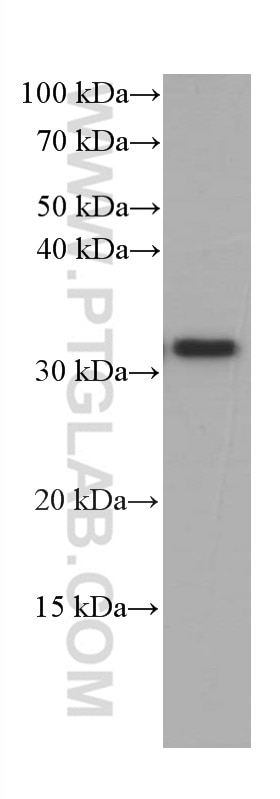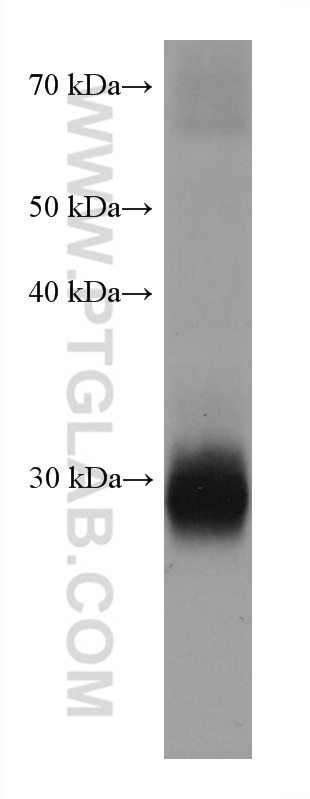Anticorps Monoclonal anti-CD40L/CD154
CD40L/CD154 Monoclonal Antibody for WB, Indirect ELISA
Hôte / Isotype
Mouse / IgG2a
Réactivité testée
Humain, rat
Applications
WB, Indirect ELISA
Conjugaison
Non conjugué
CloneNo.
1E6D10
N° de cat : 66502-1-PBS
Synonymes
Galerie de données de validation
Informations sur le produit
66502-1-PBS cible CD40L/CD154 dans les applications de WB, Indirect ELISA et montre une réactivité avec des échantillons Humain, rat
| Réactivité | Humain, rat |
| Hôte / Isotype | Mouse / IgG2a |
| Clonalité | Monoclonal |
| Type | Anticorps |
| Immunogène | CD40L/CD154 Protéine recombinante Ag24941 |
| Nom complet | CD40 ligand |
| Masse moléculaire calculée | 261 aa, 29 kDa |
| Poids moléculaire observé | 30 kDa |
| Numéro d’acquisition GenBank | BC071754 |
| Symbole du gène | CD40 Ligand |
| Identification du gène (NCBI) | 959 |
| Conjugaison | Non conjugué |
| Forme | Liquide |
| Méthode de purification | Purification par protéine A |
| Tampon de stockage | PBS only |
| Conditions de stockage | Store at -80°C. 20ul contiennent 0,1% de BSA. |
Informations générales
The CD40 ligand (CD40L, TRAP, CD154), a member of the TNF superfamily of ligands, is expressed as either a 33-kd transmembrane homologue or 18-kd soluble form (sCD154). CD40L is primarily expressed on activated CD4+ T cells and on a small proportion of CD8+ T cells and platelets. It binds to CD40 on antigen-presenting cells (APC), which leads to many effects depending on the target cell type. Recent studies have suggested that CD40/CD40L interactions regulate oxidative stress and affect various signaling pathways in both the immunological and the cardiovascular systems. The CD40/CD40L system is also involved in tumorigenesis. Its expression is tightly regulated, and abnormal levels of CD40L are associated with the pathogenesis of atheromatous plaque destabilization and thrombotic events. Multiple mutations in CD40LG gene have been identified that are associated with hyper-IgM immunodeficiency syndrome type 1.





